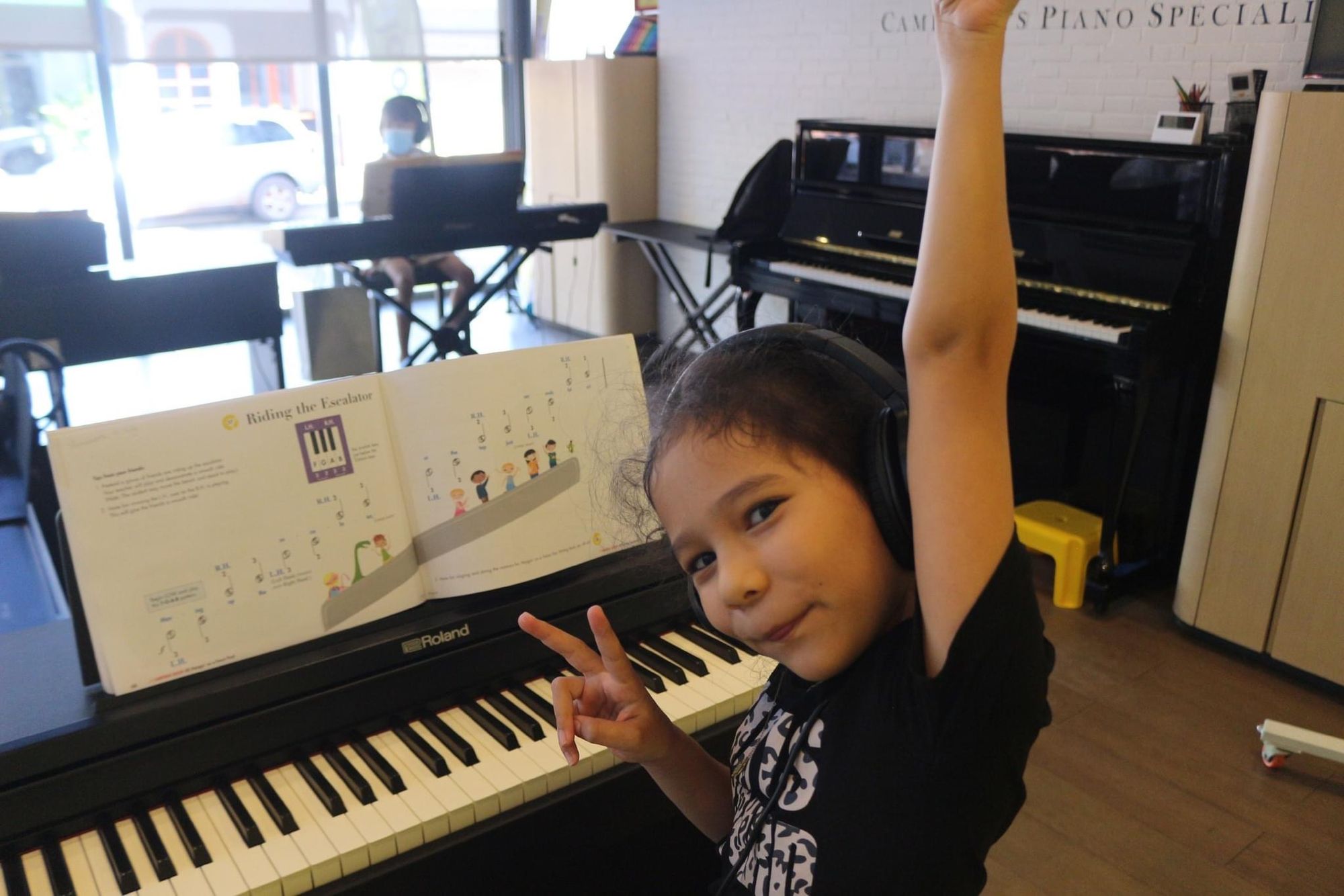5 Simple Ideas for Fun Piano Practice At Home
Piano practice requires discipline and focus. Read our article - by Soundskool

Piano practice requires discipline and focus. For some students, it may feel like a chore and boring. Read on for some simple ideas to help you and your piano student look forward to practice time every day at home.
Making piano practice a daily routine ensures that your child sees practice time as a normal and ritual that will build a positive habit that is difficult to break. At Soundskool, we have some simple ideas on how to makle this happen!
1. Keeping it brief - Students in the first few lessons should practice ten to fifteen minutes per day. Slowly work up to thirty minutes a day as they become better at it. This way, they will be more willing to come back the next day. Our brain, in general, can only work entirely for around 45 minutes before becoming less productive. It is essential to ensure that the student’s brain is in the best condition and can focus 100% on the task to make piano practice fun.
Don’t try to conquer an entire piece in one sitting. If you set short-term goals, you’ll be surprised how fast time flies!
2. Setting goals based on what they like - The truth is you will find interest in doing something because the activity is related to what you like. Next time, make sure you ask your students which pieces are their favorite and work on that, then practice would no longer be a chore.
3. Practicing piano with games - Children love games, and when it comes to learning the piano, there are lots of ways to have fun and be creative. To create a good practice game first, you must know what your target, such as piano posture or playing a song without missing any notes. If hand position is the issue you would like to tackle, make the object of the game to keep fingers curved and relaxed, and do not worry about anything else. Do not set goals too high; games should be positive. Children will enjoy games, especially if they can be successful 85% of the time or more. Kids love winning! Just like us, when we were at their age.
4. Recording their practice sessions - Most children these days like to watch themselves on videos. Watching themselves playing the piano can be both enjoyable and can be educational. Not only do they get to show off their video to their friends, but they will hear a little more objectively what their playing sounds like and what needs improvement. Another approach is to pretend that they are creating an online video tutorial. Recording them play is also the best way to keep track of their growth and music journey. This is also great practice for RSL exams in our Soundskool music schools.
They can even pretend that they are creating an online video tutorial. Teaching others can reinforce what they have learned, and then they can have fun showing their video to family and friends.
5. Practicing with your child - You don’t necessarily need to know how to play the piano to practice with your child. What’s most important is that you’re showing them your support and make them feel that you are always there to help them learn and grow simply by sitting with your child while they’re practicing. Ask your child to show you what they have learned and be excited about it. Parents at Soundskool know this is important, that's why our students learn so fast!
Above all, you can always make piano practice fun by doing what works best for your child. Suitable goals and positive reinforcement will make practicing fun and fulfilling. Most children are not self-motivated in their practice. Most of them need incentives and constant reminders to keep them focused and disciplined.
Ask your child’s music teacher for some creative ways to make practice at home more fun!
If you are not a Soundskool student, why not drop by at our music schools in Phnom Penh or Siem Reap and get started right away.

